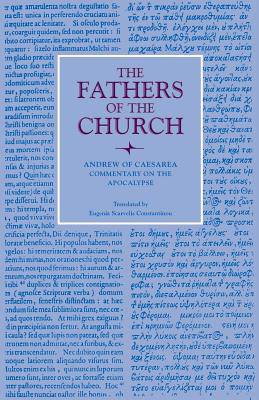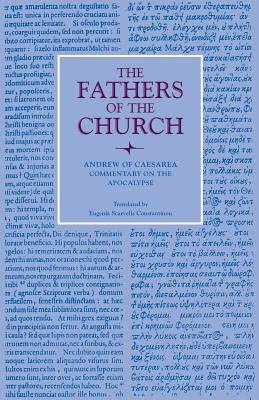
- Retrait gratuit dans votre magasin Club
- 7.000.000 titres dans notre catalogue
- Payer en toute sécurité
- Toujours un magasin près de chez vous
- Retrait gratuit dans votre magasin Club
- 7.000.0000 titres dans notre catalogue
- Payer en toute sécurité
- Toujours un magasin près de chez vous
Description
The early seventh-century Roman Empire saw plague, civil war, famine, and catastrophic barbarian invasions. Eschatological fervor ran high, as people were convinced that the end of the world was near. In this climate, a noteworthy Greek commentary on the Apocalypse was composed by Andrew, Archbishop of Caesarea, Cappadocia. In 611 Andrew of Caesarea applied his superior exegetical skills to the challenging Book of Revelation and concluded that the end was not near, in spite of the crises that the empire was facing. Striking a balance between the symbolic language of the book and its literal, prophetic fulfillment, Andrew's interpretation is a remarkably intelligent, spiritual, and thoughtful commentary that encourages the pursuit of virtue and confidence in the love of God for humanity. Standing in the stream of patristic tradition, Andrew wove together pre-existing written and oral interpretations of Revelation passages by earlier Fathers and anonymous teachers, drawing together various interpretive strands and pointing to a previously unknown rich tradition of Apocalypse interpretation in the Greek East. His commentary also influenced the textual transmission of the Apocalypse and created a unique text type. Andrew's commentary quickly eclipsed that of Oikoumenios to become the predominant and standard patristic commentary for the Greek East as well as the Slavic, Armenian, and Georgian Churches. Andrew influenced Eastern Christian eschatology and is responsible for the eventual acceptance of Revelation into the canon of the Oriental and Eastern Orthodox Churches.
Spécifications
Parties prenantes
- Auteur(s) :
- Editeur:
Contenu
- Nombre de pages :
- 270
- Langue:
- Anglais
- Collection :
Caractéristiques
- EAN:
- 9780813228112
- Date de parution :
- 01-12-11
- Format:
- Livre broché
- Format numérique:
- Trade paperback (VS)
- Dimensions :
- 140 mm x 216 mm
- Poids :
- 367 g

Les avis
Nous publions uniquement les avis qui respectent les conditions requises. Consultez nos conditions pour les avis.






